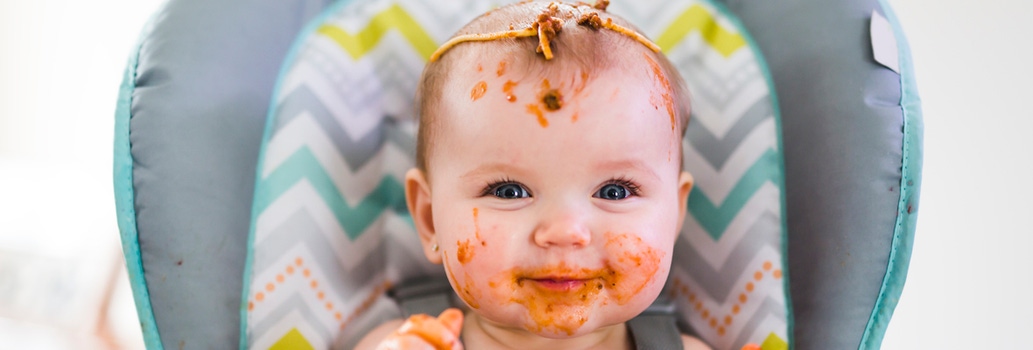
Why messy mealtimes are a parenting win
It turns out, these messy mealtimes are all part of the learning process. During the first few years of a child’s life, they’ll grow and change at a rapid pace and eating is a new skill that they need to develop.
Just like walking and talking, learning to eat takes time and practice with messy eating a very essential (no matter how frustrating) step in the process.
For toddlers meal times are sensory overload and with so many textures and smells, playing with food is super fun. It’s also one of the first opportunities for them to assert their opinion – does “no” sound familiar?
Even spitting is part of the learning process and a natural survival reaction for kids to expel any foods they don’t like.
So messy is normal; it will only last a few years while your little one is mastering self-feeding, and if you can give in to the mealtime chaos, it may even help you win the veggie battle.
Studies have shown that playing with food can help little ones overcome a fear of new flavours and encourage a more varied diet, including eating more fruit and veggies.
In the meantime to help try and reduce the mess and stress, why not try:
Finger foods
Manoeuvring a spoon or fork can be tricky. Cutting food into bite size pieces or strips will help give them self-feeding confidence, and is less likely to end in a big mess.
Plenty of praise
Don’t be afraid to praise any behaviour that shows progress without the mess, no matter how small. Tell them exactly what they did e.g. “Mummy really liked it when you popped that piece of banana right into your mouth, well done!”
Show it off
Kids are excellent imitators and learn much of their behaviour from their parents. By eating together, your kids will have the chance to watch you eat and better understand what is considered appropriate table behaviour.
Taste testing
Give kids plenty of options in smaller portions, so they can pick and choose what they’d like to try and what foods they enjoy.
Make it thicker
Eating certain foods can be frustrating for children when they’re prone to slipping off spoons. If they’re trying things like soup or porridge, make it a little thicker than normal so it’s less likely to slide off (which will hopefully mean less mess!).

The latest nutrition advice, plus health and wellness tips delivered to your inbox monthly

.jpg?width=435&height=290&format=jpg&quality=95)